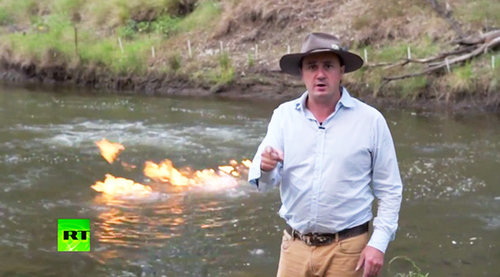375H&H
Well-known member
The Pebble Mine probably wouldn't get much opposition it if were located in the Texas Panhandle.
Ironic considering the amount of opposition coal mines in ND, WY, MT, SK, AB, TX, NM, and CO get.
Follow along with the video below to see how to install our site as a web app on your home screen.
Note: This feature may not be available in some browsers.
The Pebble Mine probably wouldn't get much opposition it if were located in the Texas Panhandle.
Ironic considering the amount of opposition coal mines in ND, WY, MT, SK, AB, TX, NM, and CO get.
Those damned hippie ranchers in SE MT.......
Gerald can you name an active mine that is an ecological disaster?
When I lived there and family members worked in those mines and taconite plants, I was pretty sympathetic to the claim, "Environmentalists just want to ruin our lives." Now, seeing how companies use the political process to lessen their responsibility (read increase/maintain profits), while asking locals to absorb the consequences to their daily lives and eventually fund the clean up/mitigation, I'm a lot less sympathetic to the claim and companies making them. I am still very sympathetic to the locals and the workers who just want a good paying job and some economic activity, both of which are compromised by US Trade policy; a trade policy that tilts the scale toward less environmental safeguards.Over the years, the company has made changes to reduce the concentrations of pollution in the pit and to collect contaminated water. It’s in the process of doing more. But the proposed permit would “have a significant impact on Minntac’s operations,” and would “cause significant hardship for the company,” U.S. Steel said in letter to the MPCA.
I some times wonder if some of the proposed mining in pristine places is fall out form the buy out of the mine close to Yellowstone in the 90's. Propose a mine in an environmentally sensitive place, do some preliminary work, Environmental groups understandably pitch a fit, demand a buy out from the government. Not a bad business plan. You can get payed for mineral rights that are not economical to mine.
Huge expanses of reduced water quality usually constitute an ecological problem. Not sure when something reaches the level of "disaster." This is not far from the proposed project in question. In fact, the entire Iron Range of NE Minnesota deals with this problem.
http://www.startribune.com/epa-push...-on-minntac-s-iron-range-waste-pit/288157331/
Ditto Gerald's thoughts. The Libby issue was a DISASTER from my perspective and effects of it have harmed many families - not discounting the environment though the human toll alone is far from acceptable.
I valued the conversations that excluded the rants of politics... information is absorbed with an appreciated understanding.
Reading Ross's considerations - it breaks through the two side rants and shares a personal reflection of the situation with a fair rationale considering his concerns.
I share this as a means to hopefully shed some light regarding conveyance of concerns and to effectively share the intent of building more support. This goes for both sides of any contested issue. Beat your keyboard chest or effectively communicate your concerns to reach others. Your call and I know it will most likely not change your future communications though...
Anyhow, initially, I originally sat in support of the mining. Now I'm slightly opposed as it really stands with the potential harm to one of our most well revered National waterways of Wilderness in America. I've paddled within the superior National forest as loved the entire adventure.
I also value jobs and the economy and appreciate the modern safety protocols. I don't like how it is foreign owned though as I'm directly involved in the U.S. immigration / non immigrant visa employment and Customs duty/tariffs, there is money to be made and U.S. employment protected.
Reading the quality posts and ignoring the partisan @#)(# fights, i have learned a great amount and feel much better informed than before. Thanks to Dudeabides, Bambistew, 357h&h and those within Minnesota, MNHunter, BigFin (formerly), etc for your conversation.
The other thing I would point out is the proposed mining ban in the paradise valley valley is nothing more than elites trying to preserve there playground as is with little sympathy for the plight of average Montanans. The Billings land fill is located almost right next to the Yellowstone River and up hill. I dont see any one bitching about that potential disaster.
As for the Billings Landfill - we have more stringent rules for landfills than we do for mining thanks to state action on the issue. A few years ago it was a big deal due to contaminants leeching in to the water table, etc.
It may not be 1945 anymore, but we're working diligently to remove every obstacle to unfettered development. Give the administration a little more time and it'll just like the good old days when rivers caught fire and we didn't worry about stupid stuff like wildlife or the outdoor economy.

Interesting. In virtually every jurisdiction I've worked, landfills/solid waste are managed under the same regulations and requirements as mine waste. Do you have any specifics how MT allows mines to operate outside the CWA and CAA? There are dozens and dozens (hundreds maybe) of old unlined landfills in MT. Unlined facilities were the norm just 25 years ago, virtually every community had a "dump". Treating leachate from a landfill is far more complicated due to the chemical cocktail that oozes out the bottom, and reacts with god knows what, as compared to typical mine waste rock.
I might also point out that right around the corner from the Paradise Valley the Stillwater mine is in operation on a pretty darn good trout river and adjacent to a wilderness area and winter ground for Bighorn sheep. I also believe they have a pretty good record.